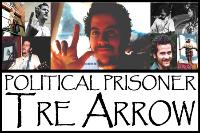Monday, October 15
WelKommen, Komcast Kustomers...
Welcome abroad, Comcast Customers:
As of September (see below), all your voice and written communications are discretely and courteously databased by the National Security Agency, the agency of caring citizen surveillance.
But rest assured; warrantless electronic snooping began much earlier than that. That scoop broke this weekend. We also now know that the Justice Department targeted the Denver-based teleco Qwest, giving its CEO Joseph Nacchio a six-year prison term for refusing to participate in the illegal surveillance program.
Watch how studiously congressional Democrats bury their collective head on this one, as they did on the Iraq War.
Aftergood's original story is here.--editor
IMPLEMENTING DOMESTIC INTELLIGENCE SURVEILLANCE
Upon lawful request and for a thousand dollars, Comcast, one of the nation's leading telecommunications companies, will intercept its customers' communications under the Foreign Intelligence Surveillance Act.
The cost for performing any FISA surveillance "requiring deployment of an intercept device" is $1,000.00 for the "initial start-up fee (including the first month of intercept service)," according to a newly disclosed Comcast Handbook for Law Enforcement.
Thereafter, the surveillance fee goes down to "$750.00 per month for each subsequent month in which the original [FISA] order or any extensions of the original order are active."
With respect to surveillance policy, the Comcast manual hews closely to the letter of the law, as one would hope and expect.
"If your [FISA intercept] request pertains to individuals outside the U.S., please be sure you have complied with all the requirements in 50 U.S.C. sections 105A and/or 105B," the manual says, referring to provisions of the Protect America Act that was enacted last month.
"Requests such as these can not be honored after one year and must be dated prior to February 5, 2008, unless extended by Congress."
Comcast will also comply with disclosure demands presented in the form of National Security Letters. However, the manual says, "Attention must be paid to the various court proceedings in which the legal status of such requests is at issue."
In short, "Comcast will assist law enforcement agencies in their investigations while protecting subscriber privacy as required by law and applicable privacy policies."
At the same time, "Comcast reserves the right to respond or object to, or seek clarification of, any legal requests and treat legal requests for subscriber information in any manner consistent with applicable law."
A copy of the manual was obtained by Secrecy News. See "Comcast Cable Law Enforcement Handbook," September 2007: http://www.fas.org/blog/secrecy/docs/handbook.pdf
The role of telecommunications companies in intelligence surveillance is under increased scrutiny as the Bush Administration seeks to shield the companies from any liability associated with their cooperation in what may be illegal warrantless surveillance.
Also, there are new indications that the unauthorized warrantless surveillance program pre-dated 9/11. The Rocky Mountain News, the Washington Post, and others reported allegations that the government may have penalized Qwest Communications for refusing to participate in a pre-9/11 National Security Agency surveillance program that the
company believed might be illegal.
http://www.washingtonpost.com/wp-dyn/content/article/2007/10/12/AR2007101202485.html
The Washington Post editorialized yesterday that the telecommunications companies should indeed be immunized against liability, as the Bush Administration desires. Even though it is not known exactly what the companies did, the Post said, they "seem to us to have been acting as
patriotic corporate citizens in a difficult and uncharted environment."
http://www.washingtonpost.com/wp-dyn/content/article/2007/10/13/AR2007101301069.html
Writing in Salon.com, Glenn Greenwald disputed that view, arguing that patriotism lies in compliance with the law, not in mere obedience to executive authority.
http://www.salon.com/opinion/greenwald/2007/10/14/rule_of_law/index.html
As of September (see below), all your voice and written communications are discretely and courteously databased by the National Security Agency, the agency of caring citizen surveillance.
But rest assured; warrantless electronic snooping began much earlier than that. That scoop broke this weekend. We also now know that the Justice Department targeted the Denver-based teleco Qwest, giving its CEO Joseph Nacchio a six-year prison term for refusing to participate in the illegal surveillance program.
USA Today reported in May 2006 that Qwest, unlike AT&T and Verizon, balked at helping the NSA track phone calling patterns that may have indicated terrorist organizational activities. Nacchio's attorney, Herbert Stern, confirmed that Nacchio refused to turn over customer telephone records because he didn't think the NSA program had legal standing.Today Steven Aftergood at Secrecy News, the blog of the Federation for American Scientist Project on Government Secrecy, updated this story breaking last Friday, featured in a 13 October Milkhouse Mouse entry. Hint: It's "even worse than we imagined."
Watch how studiously congressional Democrats bury their collective head on this one, as they did on the Iraq War.
Aftergood's original story is here.--editor
IMPLEMENTING DOMESTIC INTELLIGENCE SURVEILLANCE
Upon lawful request and for a thousand dollars, Comcast, one of the nation's leading telecommunications companies, will intercept its customers' communications under the Foreign Intelligence Surveillance Act.
The cost for performing any FISA surveillance "requiring deployment of an intercept device" is $1,000.00 for the "initial start-up fee (including the first month of intercept service)," according to a newly disclosed Comcast Handbook for Law Enforcement.
Thereafter, the surveillance fee goes down to "$750.00 per month for each subsequent month in which the original [FISA] order or any extensions of the original order are active."
With respect to surveillance policy, the Comcast manual hews closely to the letter of the law, as one would hope and expect.
"If your [FISA intercept] request pertains to individuals outside the U.S., please be sure you have complied with all the requirements in 50 U.S.C. sections 105A and/or 105B," the manual says, referring to provisions of the Protect America Act that was enacted last month.
"Requests such as these can not be honored after one year and must be dated prior to February 5, 2008, unless extended by Congress."
Comcast will also comply with disclosure demands presented in the form of National Security Letters. However, the manual says, "Attention must be paid to the various court proceedings in which the legal status of such requests is at issue."
In short, "Comcast will assist law enforcement agencies in their investigations while protecting subscriber privacy as required by law and applicable privacy policies."
At the same time, "Comcast reserves the right to respond or object to, or seek clarification of, any legal requests and treat legal requests for subscriber information in any manner consistent with applicable law."
A copy of the manual was obtained by Secrecy News. See "Comcast Cable Law Enforcement Handbook," September 2007: http://www.fas.org/blog/secrecy/docs/handbook.pdf
The role of telecommunications companies in intelligence surveillance is under increased scrutiny as the Bush Administration seeks to shield the companies from any liability associated with their cooperation in what may be illegal warrantless surveillance.
Also, there are new indications that the unauthorized warrantless surveillance program pre-dated 9/11. The Rocky Mountain News, the Washington Post, and others reported allegations that the government may have penalized Qwest Communications for refusing to participate in a pre-9/11 National Security Agency surveillance program that the
company believed might be illegal.
http://www.washingtonpost.com/wp-dyn/content/article/2007/10/12/AR2007101202485.html
The Washington Post editorialized yesterday that the telecommunications companies should indeed be immunized against liability, as the Bush Administration desires. Even though it is not known exactly what the companies did, the Post said, they "seem to us to have been acting as
patriotic corporate citizens in a difficult and uncharted environment."
http://www.washingtonpost.com/wp-dyn/content/article/2007/10/13/AR2007101301069.html
Writing in Salon.com, Glenn Greenwald disputed that view, arguing that patriotism lies in compliance with the law, not in mere obedience to executive authority.
http://www.salon.com/opinion/greenwald/2007/10/14/rule_of_law/index.html











